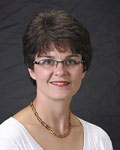August 3, 2012
Interesting hearing experiences
 By Dr. Molly Parker
By Dr. Molly Parker
Audiologist
Parker Audiology, PC
Audiology is the study of sound and hearing. Audiologists see people who have concerns for hearing loss, balance disorders, and auditory processing disorders. While it now requires a doctorate to become an audiologist, it doesn’t take a Doctor of Audiology to relate to some of the interesting things we can demonstrate in-house….
Simulated Hearing Loss…
Does your loved one have a hearing loss? As long as we have a recent hearing test, it is possible for Audiologists to simulate hearing loss by showing you what your significant other is experiencing. We can do this for children’s (grandchildren’s) voices, women’s and men’s voices. We are able to compare the left and right ears. We are also able to show you how well you can hear the cars driving up and how poorly you are hearing the birds and rustling of the trees. Family members usually do not know or understand what their hearing impaired counterparts experience, so this can be a powerful experience in relaying the phrase, “I hear but do not understand.” Or in other words, “YOU MUMBLE!”
The Quantitative Background Noise Experience
Audiologists are accused of being over interested in beeping sounds and under-interested in real life hearing—especially in background noise. No longer! Everyone has their breaking point in background noise. This is the area where the background noise is too loud for you to hear what others are saying. The Quick Speech In Noise Test (Quick SIN) is designed to quantitatively determine at what level of background noise you will break down. So, we really CAN check your hearing in more realistic scenarios.
Expectations for your new hearing aids
Most new users do not have any expectations with their new hearing aids. They have no idea how loud or soft sound are supposed to be. Audiologists have equipment called real ear measurement, or REM, which verifies where the hearing aids are supposed to be set. This particular set up is especially helpful for those who cannot comment where they are
“supposed” to hear.
There are so many more tips and tools Audiologists have now compared to years past. I encourage you to get your hearing checked routinely and to keep in mind how advanced technology can help you!
Filed Under: Health & Wellness
Tags: Audiologist, Auditory Processing Disorders, Background Noise, Balance Disorders, Breaking Point, Doctor Of Audiology, Doctorate, Ear Measurement, Grandchildren, Hearing Aids, Hearing Loss, Hearing Test, Interesting Things, Molly Parker, Noise Experience, Noise Test, Quantitative Background, Realistic Scenarios, Rem, Sound And Hearing
Trackback URL: https://www.50pluslife.com/2012/08/03/interesting-hearing-experiences/trackback/


